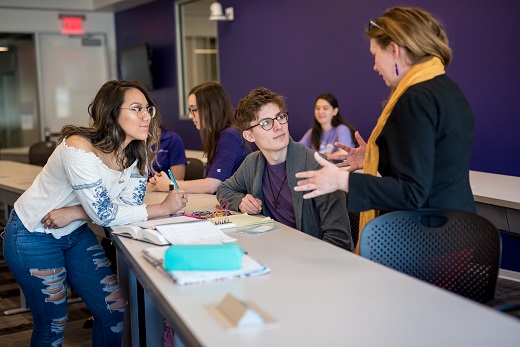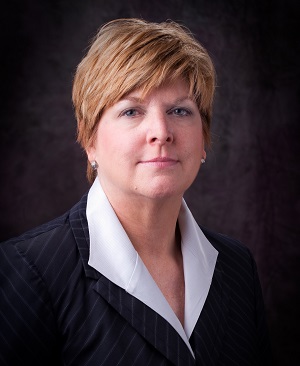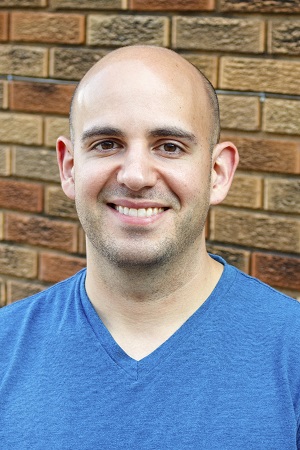08/14/19
K-State Current - August 14, 2019
K-State Current is a weekly news update for the Kansas Board of Regents to apprise the Regents on a few of the many successes and achievements made by K-State faculty, staff and students.

K-State News
National student survey ranks Kansas State University among the best college experiences
 Kansas State University's student-centered approach to higher education shines in The Princeton Review's 2020 edition of "Best 385 Colleges" publication.
Kansas State University's student-centered approach to higher education shines in The Princeton Review's 2020 edition of "Best 385 Colleges" publication.
The national student survey showcases 13% of the nation's best four-year colleges by reviewing more than 140,000 students' responses and ranking colleges in 62 categories. The Princeton Review ranked the university No. 2 in the nation for best quality of life, great relationship with the surrounding town and best health services; No. 3 for happiest students and students love these colleges; and No. 7 for best run colleges and best athletic facilities. According to the survey comments, Kansas State University students said the atmosphere is "very personable and really focused on the student" and instructors "go above and beyond" for students.
"K-State has an average 18-to-one student-to-teacher ratio and is known for its student-centered approach to higher education," said Thomas Lane, vice president for student life and dean of students. "Countless rankings like The Princeton Review's show that the university is providing an enriching and career-focused college experience for the best value in the state and one of the best among all the nation's higher education institutions."
For the fifth year in a row, Kansas State University was also named the best educational value in Kansas by SmartAsset, a financial technology company. The finding is based on tuition, living costs, average scholarships and grants, starting salary after graduation and retention rates.
"Ninety-six percent of K-State graduates are employed or are pursuing further education within six months of graduation," Lane said. "The university has an 84% retention rate and our graduates have the highest average starting salary in the state — a direct result of an exemplary K-State education and caring faculty and staff."
As part of The Princeton Review survey, students reported that professors across all disciplines truly care about teaching, are engaging and provide stimulating discussion and work by encouraging class participation. In addition, student comments mentioned the helpful, polite and friendly nature of the student body as well as the diverse campus life activities. The university also is ranked No. 12 for most active student government, No. 13 for best career services and No. 16 for best college residence halls.
Sue Peterson recognized for leadership in governmental relations
 Sue Peterson, chief governmental relations officer and assistant to the president, is the recipient of the Betty Colden Memorial Lectureship Award from the Association of Public and Land-Grant Universities' Council on Governmental Affairs.
Sue Peterson, chief governmental relations officer and assistant to the president, is the recipient of the Betty Colden Memorial Lectureship Award from the Association of Public and Land-Grant Universities' Council on Governmental Affairs.
The award recognizes a national leader in congressional or governmental relations, who has made significant contributions to the profession, council and APLU. Peterson accepted the award and gave a lecture during the council's summer meeting Aug. 1 in Park City, Utah.
At the meeting, Peterson also was presented a Career Excellence Award for her outstanding contributions to the council, the governmental affairs profession and the higher education community over a lengthy career largely dedicated to university governmental relations. She is one of nine recipients in the history of the Career Excellence Award.
"These are tremendous honors that recognize Dr. Peterson's distinguished career and all of the great work she does for K-State," said President Richard Myers. "We are grateful for her dedication and commitment to serving as the university's liaison for activities with the state and federal legislature."
The lectureship honors the late Betty Colden of Michigan State University and Wayne State University, who made significant, compassionate contributions to the Council on Governmental Affairs, APLU and the profession of governmental relations.
Peterson, who joined the university in 1989, serves as a member of the Association of Public and Land Grant Universities Council on Governmental Affairs, including three terms on the Executive Committee and two terms as secretary. She is a founding member of the Kansas Board of Regents Council on Governmental Relations and helped found the Big 12 Council of Governmental Relations Officers. She also served as the Agriculture Authorization team lead and as a member of the Agriculture Committee on Legislative Planning, which provides recommendations to Congress for upcoming farm bills.
In an effort to keep the campus community informed on legislative issues affecting the university, Peterson hosts lunchtime review sessions during the Kansas legislative session. She also has served as an instructor in the political science department.
Additional awards include the 2011 Marvin D. "Swede" Johnson Achievement Award and 2016 Flinchbaugh Family Wildcat Pride Award.
Peterson earned a bachelor's degree and a doctorate from K-State and a master's degree in public administration from the University of Kansas.
K-State Faculty Highlights
K-State researchers land $500K grant to study alfalfa

K-State researchers Krishna Jagadish (left), Barry Bradford (center) and Doohong Min talk about their upcoming project to test the digestibility of low-lignin alfalfa in dairy cows.
Kansas State University researchers are ready to launch a study on an alfalfa variety that could be more pleasing on cow’s stomachs and producers’ bottom line.
Doohong Min, associate professor of agronomy, is leading a team from K-State and the University of Nebraska which recently received $500,000 from the U.S. Department of Agriculture’s National Institute for Food and Agriculture to test growing conditions and conduct feeding trials with low-lignin alfalfa.
Lignin is the component which gives strength to the alfalfa plant, but limits digestion in cows and other ruminant animals. At least two recent alfalfa varieties are now on the market with low- or reduced-lignin properties, Min said.
“Animal performance, especially milk and meat, is heavily related to digestibility,” Min said. “That’s why it’s so critical to lower the lignin content in alfalfa.”
In the United States, alfalfa has a cash value of $9.5 billion annually. Kansas growers dedicate an estimated 610,000 acres to alfalfa each year, a substantial share of the 1.68 million acres grown in the United States. Min said every state grows some alfalfa, as well as numerous countries. It is sometimes called the “Queen of Forages” due to its reputation as a feedstuff for livestock.
“In the past, once the alfalfa starts to blossom, called the flowering stage, then the forage quality starts to go down dramatically,” Min said. “This new trait of low-lignin alfalfa can maintain nutritive value for 7-10 days after blossoming, while increasing the biomass (or amount that is available for feed).”
Under perfect conditions, that would translate to greater opportunity for farmers to harvest highly digestible alfalfa that provides the necessary nutrition to cow herds. But there is very rarely a “perfect” farming season, so K-State researchers will be studying how the low-lignin varieties perform under a variety of environmental conditions.
“There is always going to be some shortages of water, so we need to know how these shortages are going to affect the yield and the quality,” said Krishna Jagadish, an associate professor of agronomy at K-State.
Jagadish will be growing the low-lignin alfalfa varieties under rain shelters, where the amount of moisture the plant receives can be controlled. The goal, he said, is to determine if the plant can maintain low levels of lignin in all moisture conditions.
“If farmers are able to reduce a certain amount of water, especially in southwest Kansas (where two-thirds of the state’s alfalfa is grown), then there is the potential for water savings,” Min said. “And since this is a low-lignin alfalfa, the dairy producers can produce more milk because of higher digestibility. Eventually this will result in higher farm profitability and sustainability.”
Barry Bradford, a K-State professor of animal science, and Paul Kononoff, a professor of dairy nutrition at the University of Nebraska, are tasked with proving the nutritional value of low-lignin alfala to cows.
The duo will conduct feeding trials with 60 lactating Holsteins and 12 lactating Jerseys to determine if low-lignin alfalfa has an impact on diet digestibility or yields of milk, milk fat and milk protein.
Bradford said the feeding studies are important because virtually no work has been done in the U.S. to determine the effects of low-lignin varieties: “What nutritionists have been forced to do is take what we know about feeding corn silage and apply that to feeding alfalfa,” he said.
He added that the low-lignin varieties could be sold at a higher price if it’s shown that they can, indeed, improve the animal’s production. “Once we know what the likely digestive effects are, and if we are paying more for it, we can then determine if it leaves you with extra revenue,” Bradford said.
He adds: “Alfalfa is the second most important forage that we feed dairy cows in Kansas, after corn silage. We definitely need to determine how important these varieties are.”
Min said the two-year study begins in just a few weeks when the research team will plant low-lignin alfalfa. “We are very excited,” he said, “but at the same time, we have a lot of work to do.”
Craig Parker performs at Ghent Opera House
 Craig B. Parker, associate professor in the School of Music, Theatre, and Dance, was an invited performer at the recent College Music Society International Conference in Belgium.
Craig B. Parker, associate professor in the School of Music, Theatre, and Dance, was an invited performer at the recent College Music Society International Conference in Belgium.
On July 15, he performed HyeKyung Lee's "Frenetic Dream" for trumpet and piano, with the composer as pianist, in Lully Hall in the Ghent Opera House.
Lee, who was born in Seoul, South Korea, was educated at the Seoul Arts School, YonSei University, the Czech-American Summer Institute in Prague, and the University of Texas. She is associate professor of music at Denison University in Granville, Ohio, where she teaches composition, electronic music, and music theory. The winner of numerous international composition awards, her music has been described as "virtuosic fantasy where continuous rhythmic motion smoothly joined contrasting moods and effectively propelled from one section to another ... showing a penchant for colorful timbres, expressive lines, and lively rhythmic interaction of instruments."
K-State Student News
K-State common book author, Adib Khorram, to visit university, engage with students
 The award-winning author of "Darius the Great Is Not Okay" — Kansas State University's 2019 common book — will visit the university in September to discuss his bestselling book and engage with students.
The award-winning author of "Darius the Great Is Not Okay" — Kansas State University's 2019 common book — will visit the university in September to discuss his bestselling book and engage with students.
Kansas City author Adib Khorram will give a lecture at 7 p.m. on Thursday, Sept. 12, in the Ballroom in the K-State Student Union. A book signing will follow the lecture.
The event will be open to the public and free to attend. The lecture also will be livestreamed at the university's Polytechnic and Olathe campuses. More information about livestreaming opportunities will be available in the coming weeks.
"Adib Khorram's visit on Sept. 12 launches a yearlong conversation about the book's themes, including events about mental health and well-being, architecture and gardening, family and food, and identity and athletics," said Karin Westman, chair of the K-State Book Network PR/Events Committee and department head of English. "Following on the success of our 2018 selection, Angie Thomas's 'The Hate U Give,' we're looking forward to engaging the K-State family, local high school students and Kansas communities in some great discussions."
 "Darius the Great Is Not Okay" tells the story of a high school sophomore Darius Kellner, a Persian American teen who balances diagnosed depression with a love for "Star Trek" and tea. A visit to his mother's family in Iran offers Darius new ways to understand himself, his family and what he calls home.
"Darius the Great Is Not Okay" tells the story of a high school sophomore Darius Kellner, a Persian American teen who balances diagnosed depression with a love for "Star Trek" and tea. A visit to his mother's family in Iran offers Darius new ways to understand himself, his family and what he calls home.
The K-State Book Network, or KSBN, chose "Darius the Great Is Not Okay" as the university's 2019 common book following campuswide conversations and review by the KSBN selection committee, comprised of 60 students, staff, administrators and faculty from colleges and units across the university's campuses.
"Since we have announced this book, many people have shared with me their struggles with mental illness, which goes a long way to easing that stigma," said Tara Coleman, chair of KSBN and associate professor at K-State Libraries. "I have had some very thoughtful conversations with students about the book and each conversation ends with us coming up with a list of ways we can help ourselves and others be okay, even when they are not okay."
During his visit, Khorram also will meet with a group of first-year students. His talk is co-sponsored by the K-State Book Network, K-State Libraries and the English department's student honorary society, Sigma Tau Delta, among others.
If Khorram's not writing or at his day job as a graphic designer, you can probably find him learning to do a lutz jump, working on his handstands, or steeping a cup of oolong. He lives in Kansas City, Missouri. For more information on Khorram visit prhspeakers.com.
For more information about the K-State Book Network, visit k-state.edu/ksbn.
A limited number of tickets will be available for high school classes to attend Khorram's lecture. These classes also can participate in campus visits while they are at K-State. High schools and instructors interested in this opportunity can receive more information by contacting Coleman at ksbn@k-state.edu by Friday, Aug. 30.